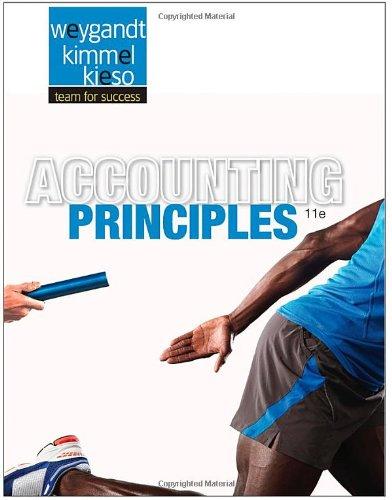Ben Paul is an accounting major at a western university located approximately 60 miles from a major
Question:
Ben Paul is an accounting major at a western university located approximately 60 miles from a major city. Many of the students attending the university are from the metropolitan area and visit their homes regularly on the weekends. Ben, an entrepreneur at heart, realizes that few good commuting alternatives are available for students doing weekend travel. He believes that a weekend commuting service could be organized and run profitably from several suburban and downtown shopping mall locations. Ben has gathered the following investment information.
1. Five used vans would cost a total of $90,000 to purchase and would have a 3-year useful life with negligible salvage value. Ben plans to use straight-line depreciation.
2. Ten drivers would have to be employed at a total payroll expense of $43,200.
3. Other annual out-of-pocket expenses associated with running the commuter service would include Gasoline $26,000, Maintenance $4,000, Repairs $6,000, Insurance $4,500, Advertising $2,200.
4. Ben desires to earn a return of 15% on his investment.
5. Ben expects each van to make ten round trips weekly and carry an average of six students each trip. The service is expected to operate 32 weeks each year, and each student will be charged $15 for a round-trip ticket.
Instructions
(a) Determine the annual
(1) Net income and
(2) Net annual cash flows for the commuter service.
(b) Compute
(1) The cash payback period and
(2) The annual rate of return.
(c) Compute the net present value of the commuter service.
(d) What should Ben conclude from these computations?
Net Present ValueWhat is NPV? The net present value is an important tool for capital budgeting decision to assess that an investment in a project is worthwhile or not? The net present value of a project is calculated before taking up the investment decision at... Salvage Value
Salvage value is the estimated book value of an asset after depreciation is complete, based on what a company expects to receive in exchange for the asset at the end of its useful life. As such, an asset’s estimated salvage value is an important... Payback Period
Payback period method is a traditional method/ approach of capital budgeting. It is the simple and widely used quantitative method of Investment evaluation. Payback period is typically used to evaluate projects or investments before undergoing them,...
Step by Step Answer:

Accounting Principles
ISBN: 9781118566671
11th Edition
Authors: Jerry Weygandt, Paul Kimmel, Donald Kieso





